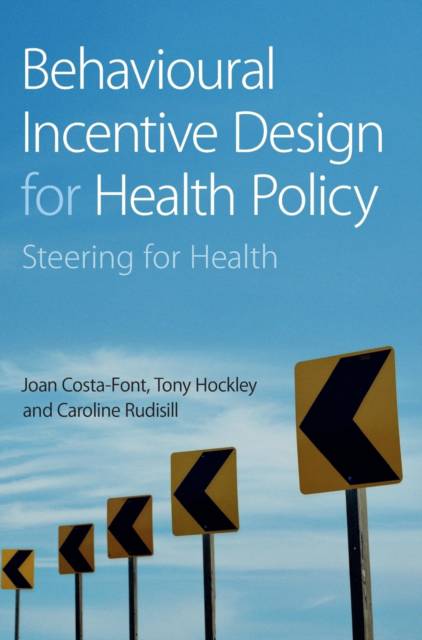
Door een staking bij bpost kan je online bestelling op dit moment iets langer onderweg zijn dan voorzien. Dringend iets nodig? Onze winkels ontvangen jou met open armen!
- Afhalen na 1 uur in een winkel met voorraad
- Gratis thuislevering in België vanaf € 30
- Ruim aanbod met 7 miljoen producten
Door een staking bij bpost kan je online bestelling op dit moment iets langer onderweg zijn dan voorzien. Dringend iets nodig? Onze winkels ontvangen jou met open armen!
- Afhalen na 1 uur in een winkel met voorraad
- Gratis thuislevering in België vanaf € 30
- Ruim aanbod met 7 miljoen producten
Zoeken
Behavioural Incentive Design for Health Policy
Steering for Health
Joan Costa-Font, Tony Hockley, Caroline Rudisill
Hardcover | Engels
€ 151,45
+ 302 punten
Uitvoering
Omschrijving
Behavioural economics has become a popular way of tackling a broad range of issues in public policy. By presenting a more descriptive and possibly accurate representation of human behaviour than traditional economics, Behavioural Incentive Design for Health Policy tries to make sense of decisions that follow a wider conception of welfare, influenced by social norms and narratives, pro-social motivations and choice architectures which were generally neglected by standard economics. The authors show how this model can be applied to tackle a wide range of issues in public health, including smoking, the obesity crisis, exercise uptake, alcoholism, preventive screenings and attitudes towards vaccinations. It shows not only how behavioural economics allows us to better understand such challenges, but also how it can design effective incentives for addressing them. This book is an extensive reassessment of the interaction between behavioural incentives and health.
Specificaties
Betrokkenen
- Auteur(s):
- Uitgeverij:
Inhoud
- Aantal bladzijden:
- 228
- Taal:
- Engels
Eigenschappen
- Productcode (EAN):
- 9781009168137
- Verschijningsdatum:
- 1/06/2023
- Uitvoering:
- Hardcover
- Formaat:
- Genaaid
- Afmetingen:
- 170 mm x 244 mm
- Gewicht:
- 576 g

Alleen bij Standaard Boekhandel
+ 302 punten op je klantenkaart van Standaard Boekhandel
Beoordelingen
We publiceren alleen reviews die voldoen aan de voorwaarden voor reviews. Bekijk onze voorwaarden voor reviews.











